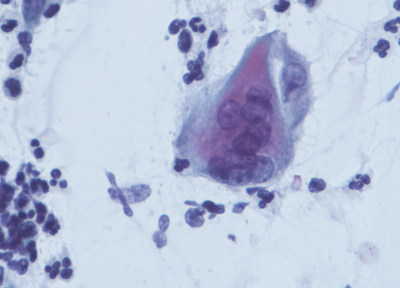Breast Cancer
Breast cancer is the most common cancer globally, with over 2 million cases annually.
On This Page:
Overview
Breast cancer starts when cells in the breast grow uncontrollably, forming tumors that can spread to other parts of the body. Though more common in women, men can also develop breast cancer.
Understanding how the immune system interacts with breast cancer has reshaped treatment. Traditionally, treatment options were driven by chemotherapy, radiation, surgery, and hormone/HER2-targeted drugs. Immunology adds a new dimension, leading to therapies that enable the immune system to better detect and eliminate cancer.
Key Points
- Breast cancer is the most common cancer globally, with over 2 million cases annually.
- Immunotherapy treatments, including checkpoint inhibitors and antibody-drug conjugates, are now approved for certain forms of breast cancer.
- Emerging therapies, such as tumor-infiltrating lymphocyte (TIL) therapy and CAR T-cell therapy, offer hope for more personalized and durable treatments in the future.
Key Statistics (U.S.)
Key Statistics
Global incidence: In 2022, Around 2.3 million new cases and 670,000 deaths worldwide.
U.S. incidence: In 2024, an estimated 310,700 new cases and 42,250 deaths.
Survival: U.S. 5year relative survival is 91%, improving from around 75% in the 1970s.
Lifetime risk (U.S.): Approximately 1 in 8 women in the US (13.1%) will be diagnosed with invasive breast cancer, and 1 in 43 (2.3%) will die from the disease.
Immunology and Breast Cancer
As scientists have learned more about how the immune system interacts with breast cancer, they’ve uncovered powerful ways to activate the body’s natural defenses to fight the disease. Today, immunology research is helping shape a new generation of treatments that help the immune system recognize, target, and destroy them.
Checkpoint Inhibitors
These drugs target immune “brakes”, reactivating T cells to kill cancer.
- Pembrolizumab (Keytruda): Used to treat high-risk early-stage triple-negative breast cancer (TNBC) in combination with chemotherapy, both before and after surgery. It is also used in combination with chemotherapy to treat some patients with advanced TNBC.
Antibody-Drug Conjugates
This treatment combines antibodies with chemotherapy agents, delivering toxins directly to cancer cells.
- Sacituzumab govitecan (Trodelvy): Approved for treating patients with metastatic TNBC.
- Trastuzumab emtansine (Kadcyla): This drug can be used to treat HER2-positive early breast cancer, as well as patients with HER2-positive metastatic breast cancer.
What’s next for breast cancer?
While major progress has been made in treating breast cancer—especially with hormone therapies and HER2-targeted drugs—researchers are now pushing the boundaries of what’s possible with immunology-driven advances. One of the most promising frontiers involves personalized immune-based therapies that go beyond one-size-fits-all treatments.
Tumor-infiltrating lymphocyte (TIL) therapy, which uses a patient’s own immune cells extracted from the tumor, is showing early success in shrinking hard-to-treat breast cancer. CAR T-cell therapy, which has revolutionized blood cancer treatment, is now being adapted for solid tumors like breast cancer, with clinical trials underway. Scientists are also exploring bispecific antibodies, immune-stimulating cytokines, and ways to reshape the tumor microenvironment so the immune system can better penetrate and attack tumors.
As these new approaches evolve, the future of breast cancer treatment is moving toward more precise, immune-guided care—where the patient’s own biology helps drive better outcomes, fewer side effects, and longer-lasting protection.
Sources
- Breast Cancer Fact Sheet, World Health Organization
- Breast Cancer Facts & Figures 2024-2025, American Cancer Society
Related Topics
Downloads
External Resources
Latest News


